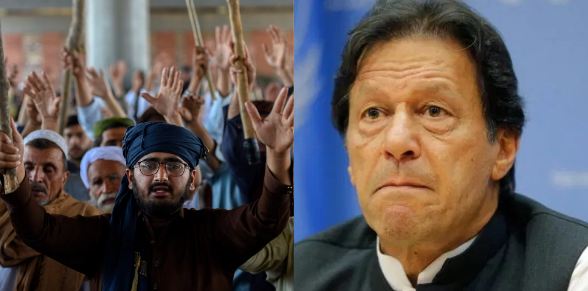
Pakistan’s claims of fighting terrorism have been hurt by the recent decisions, in the course of one week, to give in to two radical Islamist and terrorist groups: the Tehreek e Labbaik Pakistan (TLP) and the Tehreek e Taliban Pakistan (TTP).
As veteran columnist and author Zahid Hussain notes, “days after surrendering to the Tehreek-i-Labbaik Pakistan, the government has announced a month-long ceasefire with another banned terrorist outfit. We are told that there has been substantive development in the ongoing negotiations with the Tehreek-i-Taliban Pakistan (TTP), brokered by the Afghan Taliban. But we still don’t know on what terms the so-called peace is being negotiated with a terrorist group that had declared war on the Pakistani state and had killed thousands of people.”
Hussain points out that “the state has virtually surrendered to a group that is also on the list of global terrorist networks. There is no indication yet that the TTP is willing to lay down its arms and accept the Constitution. The demand for the release of prisoners before talks would make it clear that the outfit seeks to negotiate from a position of strength.”
Hussain argues that this “seems to follow the pattern of past peace negotiations with the militant group. Each peace deal further empowered the terrorist outfit. The latest talks are likely to be used by the TTP to reorganise itself and regain its space in the tribal districts. There are already some reports of the revival of TTP activities in parts of the area. The return of Taliban rule in Afghanistan seems to have further emboldened the proscribed network.”
Hussain concludes by stating that it is troubling that there is no “clear strategy on the part of the state on how to deal with terrorist and violent faith-based extremist groups. There has not been any effort to develop a national consensus on such critical national security issues.”
![]()





